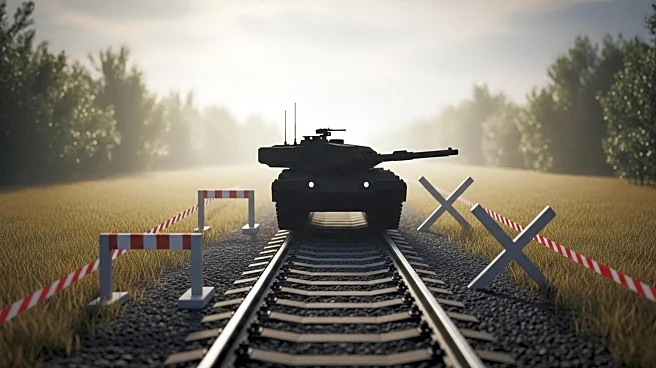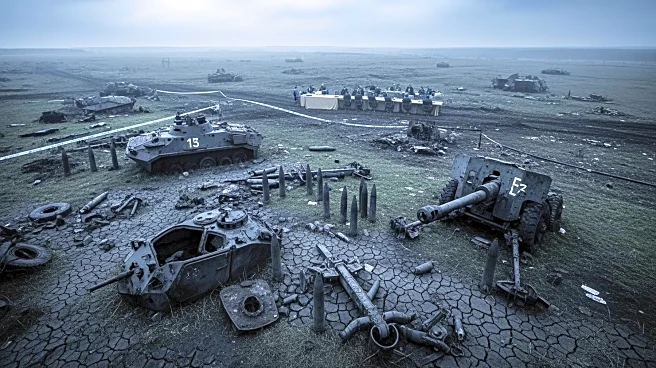What is the story about?
What's Happening?
The ongoing conflict in Ukraine has intensified the need for efficient military logistics across Europe, particularly on NATO's eastern flank. French Brig. Gen. Fabrice Feola has pointed out bureaucratic hurdles that could impede the rapid deployment of troops and equipment. France has significantly increased its military rail transports, organizing around 150 international military trains in 2024, compared to fewer than five annually before the conflict. The EU aims to streamline military mobility, targeting a five-day approval process for cross-border military convoys, but progress has been inconsistent among member states. The French general emphasized the importance of optimizing transport networks to ensure continuity in military operations, especially in the event of a major engagement on NATO's eastern front.
Why It's Important?
Efficient military logistics are crucial for NATO's readiness and response capabilities, particularly in the face of potential Russian aggression. The ability to quickly move troops and equipment is vital for maintaining a strategic advantage and ensuring the security of member states. The bureaucratic challenges highlighted by Brig. Gen. Feola underscore the need for improved coordination and infrastructure across Europe. Streamlining these processes could enhance NATO's operational effectiveness and deter adversaries by demonstrating a robust and agile military presence. The focus on rail transport reflects its cost-effectiveness and speed, essential for large-scale mobilizations.
What's Next?
The EU is expected to unveil new military mobility rules aimed at reducing bureaucratic delays and improving infrastructure to support military convoys. France is advocating for the identification of corridors capable of handling military vehicles, addressing infrastructure choke points like tunnels and bridges. The establishment of a coordinating authority for military mobility governance in Europe is also being considered to ensure seamless operations across borders. These efforts are crucial for enhancing NATO's readiness and response capabilities, particularly in light of ongoing tensions with Russia.














